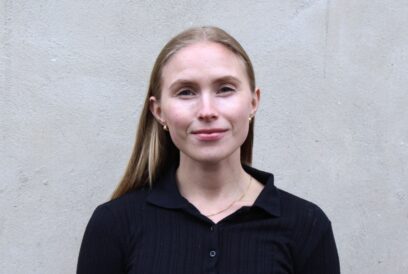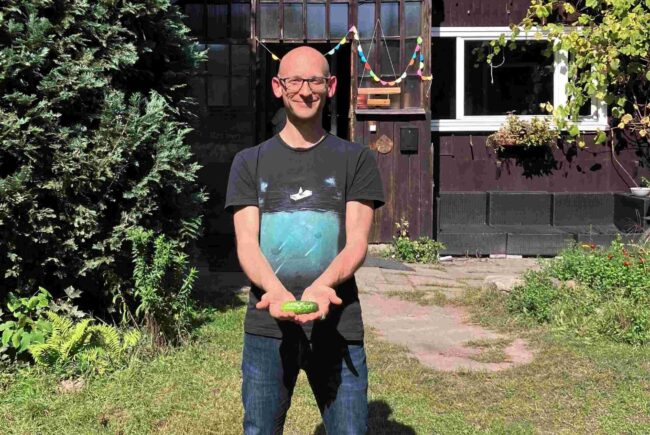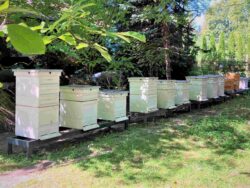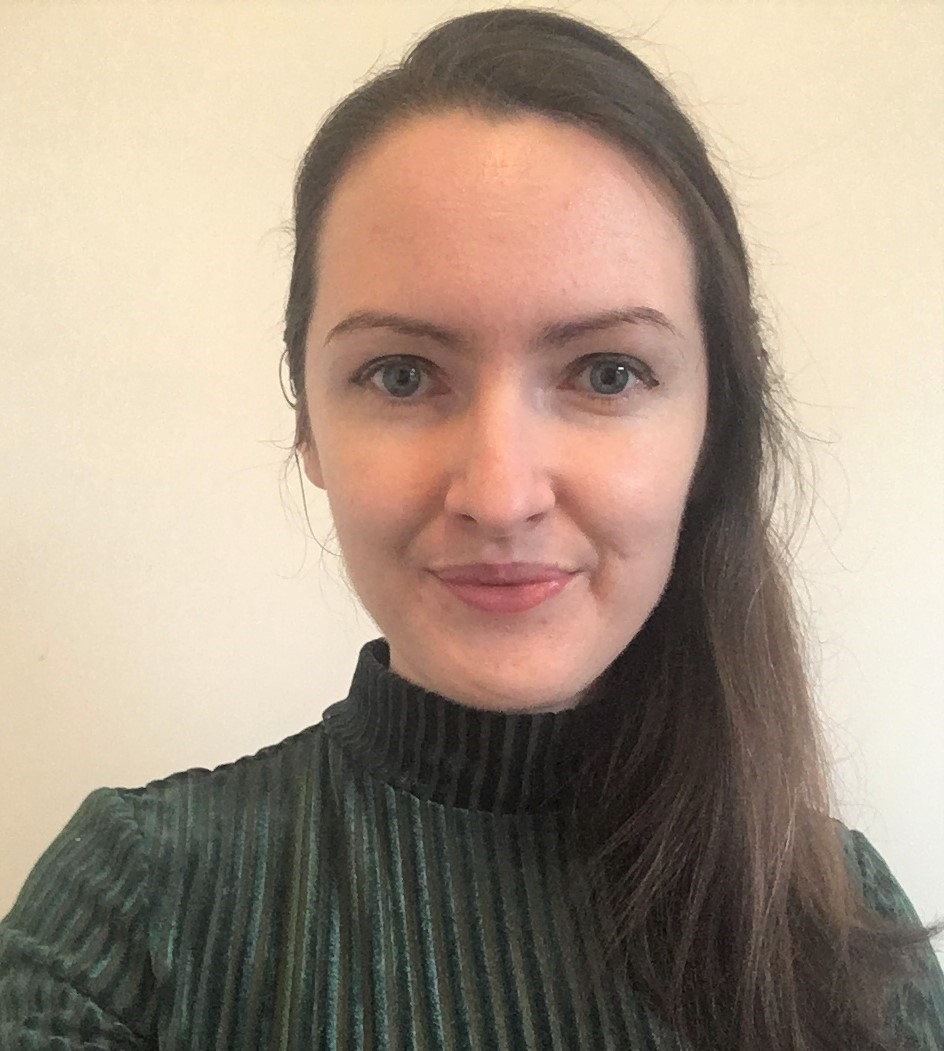

“Our challenge is to stay true to our values even if we become more institutionalised”, says Wojciech Matejko of Open Jazdów in front of one of the community houses. Photo: Aleksandra Kozyra.
“Our challenge is to stay true to our values even if we become more institutionalised”, says Wojciech Matejko of Open Jazdów in front of one of the community houses. Photo: Aleksandra Kozyra.
Wojciech Matejko answers three quick questions on the community Open Jazdów in Warsaw, Poland. The community supports people’s initiatives for social, cultural and ecological sustainability. Sometimes re-imagining the future requires looking back to the past.
In the centre of Warsaw, just around the corner from the Polish House of Parliament, a wooden village brings together its residents, NGOs, urban gardeners and beekeepers.
The settlement has a unique history, which began after the Second World War, when the city had been almost completely destroyed. The houses were built to host engineers who were rebuilding the city.
Today, the settlement still exists. It became an activist project in 2010 when residents and local NGOs joined forces to save it from demolition.
Wojciech Matejko, Secretary of the Open Jazdów Partnership, explains how grassroots initiatives can become an inspiration for people. He also reflects on the interconnection between the past and the future.
Organisations in Jazdów help people build a better future. How do they do it?
We have 25 NGOs in Open Jazdów Partnership, with diverse profiles. Some of them work specifically on green transition, some support LGBTQ groups or refugees and others focus on promoting traditional music or visual arts.
We are also constantly working on how to maintain the community, set the rules and make sure that everyone is important.
One example of partners working on green transition is Hoe and Sun. It runs a community garden, open to anyone who wants to learn how to grow their own food.
We also have beehives, which were put here in 2014, when it was still forbidden to do so within the city limits. In spite of this, Wiktor from Urban Bees set up the beehives just to show that bees don’t do any harm. At the same time, he lobbied to change the city regulations.
He was successful and today there are beehives on the rooftops of several buildings, including those of the municipality.

Beehives were set up in 2014 by the rebelling pioneers of Urban Bees to show that bees don’t do any harm. Photo: Aleksandra Kozyra.
Also, we try to help adults learn about the times that we are living in and the challenges we are facing, and we do it in different ways.
For example, in our main house, we have opened a small library called the Climate Reading House. We have selected books that talk about mitigating and stopping climate change. You can come by every Sunday to read them over a coffee.
What have been the factors for the success of Jazdów?
I think part of it was thinking about the history, and the fact that this place was born out of a crisis. Today we are also in a crisis, or multiple crises.
What can we learn from the past for the sake of the future?
We progressionists always want to think that we’re the ones who are creating new paths. However, as far back as in 1945 there were community gardens taken care by the people who were living here.
Many of our ideas are not really new. They are more about going back in time and doing things a bit more slowly.

Open Jazdów with its 27 wooden houses on a map. The settlement dates back to the times after the Second World War. Photo: Aleksandra Kozyra.
What are the next steps? What are your main challenges?
Our challenge is to make sure that we stay true to our values, even if we become more institutionalised in the future. I’m aware that many projects like ours have ended up adding capital for the next development project.
I dream of this place being a forever autonomous zone rather than just a temporary one. Perhaps I’m too ambitious, but I hope that, in ten years, I can come here with my daughter, who is now three years old. I would love to do workshops with her, and for them to be organised by people who are really engaged with the place.
An extended conversation with Wojciech features in EAEA’s podcast Beyond Learning, which explores stories of learning, and stories of change. Listen to the first episode to take a tour around Jazdów, and to hear more about its unique history and ongoing initiatives.
Author







